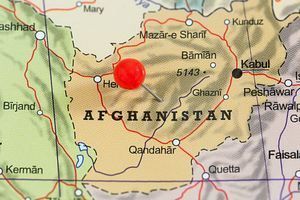On November 25, 2001, the Bonn Conference began, where different groups and influential figures from Afghanistan were invited to participate in a process that would determine the structure of the country’s political future. Both the Taliban and Hezbi-e-Islami were not invited to the conference and were denied equities in the future of the Afghan government. This resulted in the marginalization of a large segment of Afghan society, which later returned as a systematic insurgency against foreign forces and the Afghan government. Indeed, their violence continues to this day.
Disappointed by Pakistan’s lip service toward the Taliban’s behavior, President Ashraf Ghani’s government is now currently negotiating with other major warring parties. Hezb-e-Islami Afghanistan (HIA), a group led by Gulbuddin Hekmatyar, has sent its delegation to Kabul in order to reach a political agreement with the Afghan government. HIA, which was once one of Afghanistan’s biggest political parties, has a softer approach compared with the Taliban. Therefore, this is a golden opportunity for the Afghan government, led by Ghani, to reach a political settlement with HIA. Both the Ghani-led National Unity Government (NUG) and HIA are in a win-win position.
If the Afghan government reaches a political agreement with Hezb-e-Islami, the event would stand as perhaps the biggest success for the NUG since its formation in late-2014. The government can successfully include someone in the system who has not accepted the offers of different governments for the past four decades, which is true in the case of HIA and Hekmatyar.
Further, the inclusion of HIA will have salutary impact on Taliban. With their arrival to the political ground in Afghanistan, the Taliban might feel pressured and encouraged to join the political process too. Also on the bright side, the arrangement with HIA will play a key role in decreasing violence across the country. However, if government fails to reach an agreement with HIA, it will be difficult to bring both HIA and Taliban back to the table for political and diplomatic negotiations.
HIA is considered more amenable to talks as compared to the Taliban, who continue to hold a hard stance and turn to militarism. Furthermore, HIA consists of mostly Afghans who are interested in national diplomacy, unlike the Islamic State and other violent groups who show zero interest in peace for the Afghan population. HIA was one of the more renowned political parties in Afghanistan during the 1980s and 1990s, and included people from all ethnic major groups in Afghanistan.
Since the party still enjoys robust support across the country today, their arrival into the NUG’s process will play a key role in strengthening Afghanistan’s democratic system. After the fall of the Taliban government in 2001, a political vacuum was emerged when both the Taliban and HIA were driven out of the political arena, which was filled by the Jamiat-e-Islami Party, led by late Burhanudin Rabbani. Thus, HIA’s arrival will definitely help restore some political balance in Afghanistan’s power politics.
This is also a golden opportunity for HIA leadership and the group’s supporters to compromise on a peace deal with the Afghan government that will pave a way for the return of its leadership through democratic means. Also, the removal of their leaders’ names from the blacklist will permit their full participation in the transformation of Afghan politics that continues today.
Meanwhile, the current NUG government, which has faced many troubles and failed to deliver on some of its promises, stands to restore credibility by clinching a deal with HIA. Ghani made a key promise to bring peace to this country, seeking to accomplish what his predecessor failed to do in 14 years. The four decades of long war that have destroyed the country must finally end. When the leaders of HIA have shown a willingness for political engagement, Afghanistan glimpses a great opportunity for peace. The Ghani government must seize the moment.
Aziz Amin Ahmadzai writes on political, security and social issues in South, West, and Central Asia. He is based in Kabul and tweets at @azizamin786.

































